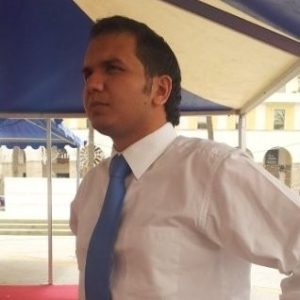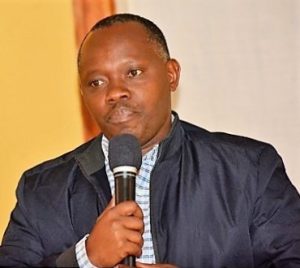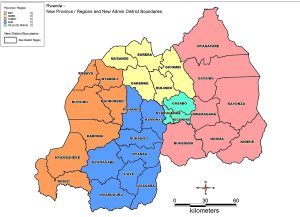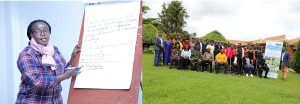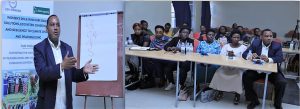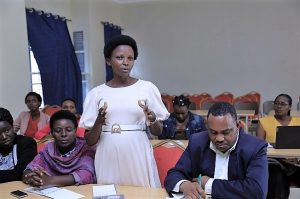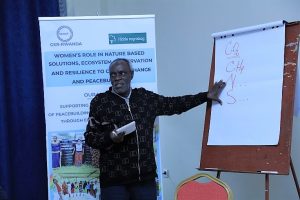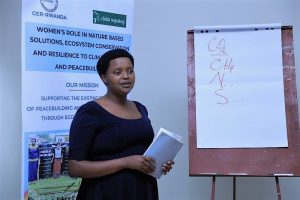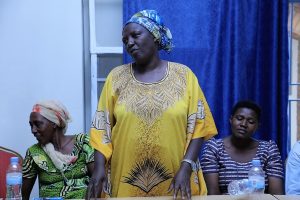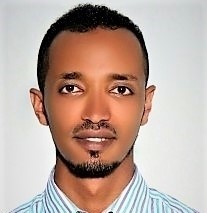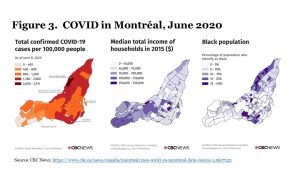Effective epidemiological surveillance is essential for monitoring and controlling the spread of infectious diseases during pandemics. The COVID-19 pandemic has highlighted the importance of timely and accurate surveillance, and the need for real-time data sharing to inform public health decision-making. This article provides an overview of epidemiological surveillance in pandemics, including the key principles, methods, and technologies used to collect, analyze, and disseminate data. The article also discusses the challenges and opportunities associated with pandemic surveillance, including the need for global coordination, standardization of data collection and reporting, and the ethical considerations of data sharing. By understanding the principles and challenges of epidemiological surveillance in pandemics, public health officials and policymakers can develop effective strategies to detect, prevent, and control the spread of infectious diseases
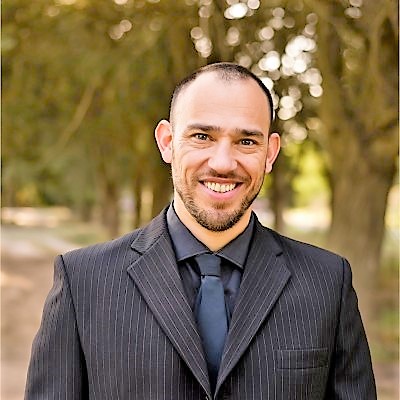
By Nicolas Castillo
Biochemical. Private Laboratory Santa Clara de Saguier Sanatorium, Santa Fe, Argentina
Epidemiological Surveillance in Pandemics
Introduction
The emergence and rapid spread of infectious diseases, such as COVID-19, pose significant threats to global public health. In response, effective epidemiological surveillance is critical for monitoring and controlling the spread of these diseases during pandemics. Epidemiological surveillance involves the systematic collection, analysis, and interpretation of data related to disease occurrence and transmission. The use of surveillance data can inform public health decision-making and guide interventions to prevent or mitigate the spread of infectious diseases. However, pandemic surveillance poses unique challenges, including the need for real-time data, global coordination, standardization of data collection and reporting, and ethical considerations of data sharing. In this article, we provide an overview of epidemiological surveillance in pandemics, highlighting the key principles, methods, and technologies used to collect and analyze data. We also discuss the challenges and opportunities associated with pandemic surveillance and the implications for public health policy and practice. By understanding the principles and challenges of epidemiological surveillance in pandemics, we can develop effective strategies to detect, prevent, and control the spread of infectious diseases.
Materials and methods
The materials used in this study include data from various sources, including epidemiological databases, public health reports, and scientific literature. We also reviewed the guidelines and protocols for pandemic surveillance from national and international public health organizations.
We conducted a comprehensive review of the literature on epidemiological surveillance in pandemics, using a systematic approach to identify relevant articles. We searched multiple databases, including PubMed, Scopus, and Web of Science, using keywords related to epidemiological surveillance and pandemics. We also reviewed the websites of national and international public health organizations, such as the World Health Organization (WHO) and the Centers for Disease Control and Prevention (CDC), to identify guidelines and protocols for pandemic surveillance.
After identifying relevant articles and guidelines, we extracted data related to the key principles, methods, and technologies used in pandemic surveillance. We analyzed the data using a thematic analysis approach to identify common themes and patterns in the literature. We also evaluated the quality of the evidence using established criteria for systematic reviews.
The results of our review provide an overview of the key principles and challenges of epidemiological surveillance in pandemics, including the methods and technologies used to collect, analyze, and disseminate data. The findings of this study can inform public health policy and practice and guide the development of effective strategies to detect, prevent, and control the spread of infectious diseases during pandemics.
Development
Key Principles of Epidemiological Surveillance in Pandemics
Rapid Detection and Response: Early detection of an outbreak is essential for implementing timely and effective response measures. Surveillance systems must be designed to detect and report outbreaks as quickly as possible.
Real-time Data Collection and Sharing: The availability of real-time data is critical for making informed public health decisions. Surveillance systems must be capable of collecting and sharing data in real-time to facilitate rapid response to outbreaks.
Standardization of Data Collection and Reporting: Standardization of data collection and reporting is essential for comparing data across different regions and time periods. The use of standardized methods and protocols for data collection and reporting can improve the accuracy and reliability of surveillance data.
Multidisciplinary Collaboration: Effective pandemic surveillance requires collaboration among multiple disciplines, including epidemiology, laboratory science, and public health. Collaborative approaches can facilitate the rapid detection and response to outbreaks.
Methods and Technologies Used in Epidemiological Surveillance in Pandemics
Case Reporting: Case reporting involves the identification and reporting of cases of a particular disease. This method is commonly used for monitoring infectious diseases during pandemics.
Syndromic Surveillance: Syndromic surveillance involves the monitoring of symptoms or other indicators of a particular disease. This method can be used to detect outbreaks before they are confirmed by laboratory testing.
Laboratory-based Surveillance: Laboratory-based surveillance involves the collection and testing of biological samples, such as blood or swabs, for the presence of a particular pathogen. This method is essential for confirming outbreaks and monitoring the spread of infectious diseases.
Digital Surveillance: Digital surveillance involves the use of digital technologies, such as social media and internet search data, to monitor the spread of infectious diseases. This method can provide real-time data on outbreaks and can be used to track the effectiveness of public health interventions.
Challenges and Opportunities in Epidemiological Surveillance in Pandemics
Global Coordination: Effective pandemic surveillance requires global coordination to detect and respond to outbreaks in a timely manner. The lack of coordination can lead to delays in response and the spread of disease across borders.
Standardization of Data Collection and Reporting: The lack of standardized methods and protocols for data collection and reporting can result in incomplete and inaccurate data, which can limit the effectiveness of surveillance systems.
Ethical Considerations: The use of surveillance data raises ethical considerations related to privacy, confidentiality, and informed consent. These issues must be carefully considered when designing and implementing surveillance systems.
Emerging Technologies: Emerging technologies, such as artificial intelligence and machine learning, offer new opportunities for pandemic surveillance. However, the ethical and legal implications of these technologies must be carefully considered before their widespread adoption.
Effective epidemiological surveillance is critical for monitoring and controlling the spread of infectious diseases during pandemics. Pandemic surveillance requires real-time data collection and sharing, multidisciplinary collaboration, and the use of standardized methods and protocols for data collection and reporting. Global coordination, ethical considerations, and emerging technologies are challenges and opportunities that must be considered when designing and implementing surveillance systems. By understanding the principles and challenges of epidemiological surveillance in pandemics, public health officials and policymakers can develop effective strategies to detect, prevent, and control the spread of infectious diseases.
Discussion
The COVID-19 pandemic has highlighted the critical importance of epidemiological surveillance in detecting and responding to outbreaks of infectious diseases. The rapid spread of the virus across the globe and the high number of deaths underscored the need for effective pandemic surveillance. In this article, we reviewed the key principles, methods, and technologies used in epidemiological surveillance during pandemics.
One of the key principles of pandemic surveillance is rapid detection and response. Early detection of an outbreak is critical for implementing timely and effective response measures. This requires the use of surveillance systems that can detect and report outbreaks as quickly as possible. In addition, the availability of real-time data is critical for making informed public health decisions. Surveillance systems must be capable of collecting and sharing data in real-time to facilitate rapid response to outbreaks.
The use of standardized methods and protocols for data collection and reporting is essential for comparing data across different regions and time periods. The lack of standardized methods and protocols can lead to incomplete and inaccurate data, which can limit the effectiveness of surveillance systems. Multidisciplinary collaboration is also critical for effective pandemic surveillance. Collaboration among multiple disciplines, including epidemiology, laboratory science, and public health, can facilitate the rapid detection and response to outbreaks.
We also discussed the methods and technologies used in epidemiological surveillance during pandemics. These include case reporting, syndromic surveillance, laboratory-based surveillance, and digital surveillance. Each of these methods has strengths and weaknesses, and the choice of method depends on the specific situation and available resources.
Finally, we discussed the challenges and opportunities in epidemiological surveillance during pandemics. These include global coordination, the lack of standardized methods and protocols for data collection and reporting, ethical considerations related to privacy and confidentiality, and the ethical and legal implications of emerging technologies.
In conclusion, effective epidemiological surveillance is critical for monitoring and controlling the spread of infectious diseases during pandemics. By understanding the key principles, methods, and technologies used in pandemic surveillance, public health officials and policymakers can develop effective strategies to detect, prevent, and control the spread of infectious diseases.
Conclusion
The COVID-19 pandemic has highlighted the critical importance of epidemiological surveillance in detecting, preventing, and controlling the spread of infectious diseases. Effective pandemic surveillance requires the use of standardized methods and protocols for data collection and reporting, rapid detection and response, and multidisciplinary collaboration among different disciplines. The use of different methods and technologies, such as case reporting, syndromic surveillance, laboratory-based surveillance, and digital surveillance, can enhance the effectiveness of pandemic surveillance.
However, pandemic surveillance also faces several challenges, including ethical considerations related to privacy and confidentiality, the lack of standardized methods and protocols for data collection and reporting, and the ethical and legal implications of emerging technologies. Addressing these challenges and opportunities requires global coordination, innovative approaches, and the involvement of different stakeholders.
Overall, epidemiological surveillance is critical for detecting, preventing, and controlling the spread of infectious diseases during pandemics. By improving surveillance systems, enhancing global coordination, and promoting multidisciplinary collaboration, we can strengthen our ability to respond to future pandemics and protect public health.
Declaration of conflict of interest: As the author, I declare that there is no conflict of interest.
Acknowledgments: To my family for accompanying me at all times.
Bibliographic Citations
- World Health Organization. (2020). WHO coronavirus (COVID-19) dashboard. Retrieved from https://covid19.who.int/
- Centers for Disease Control and Prevention. (2021). COVID-19 pandemic planning scenarios. Retrieved from https://www.cdc.gov/coronavirus/2019-ncov/hcp/planning-scenarios.html
- Brouwer, A. F., van Kleef, E., & van Benthem, B. H. (2021). Syndromic surveillance for COVID-19: A real-time approach to risk detection. Clinical Infectious Diseases, 73(Supplement_2), S149-S154.
- Kucharski, A. J., Klepac, P., Conlan, A. J., Kissler, S. M., Tang, M. L., Fry, H., … & Edmunds, W. J. (2020). Effectiveness of isolation, testing, contact tracing and physical distancing on reducing transmission of SARS-CoV-2 in different settings: A mathematical modelling study. The Lancet Infectious Diseases, 20(10), 1151-1160.
- World Health Organization. (2023). Global Influenza Surveillance and Response System (GISRS). Retrieved from https://www.who.int/initiatives/global-influenza-surveillance-and-response-system
- Brownstein, J. S., Freifeld, C. C., & Madoff, L. C. (2009). Digital disease detection—Harnessing the Web for public health surveillance. New England Journal of Medicine, 360(21), 2153-2157.
- M’ikanatha, N. M., Lynfield, R., Van Beneden, C. A., de Valk, H., & Infectious Disease Surveillance Section. (2013). Infectious disease surveillance. John Wiley & Sons.
- World Health Organization. (2016). International Health Regulations (2005), Third Edition. Retrieved from https://www.who.int/ihr/publications/9789241580496/en/
—–
By the same author on PEAH
Population Aging, a Challenge for Public Health in Latin America and the World

